ARMEEN MUSA
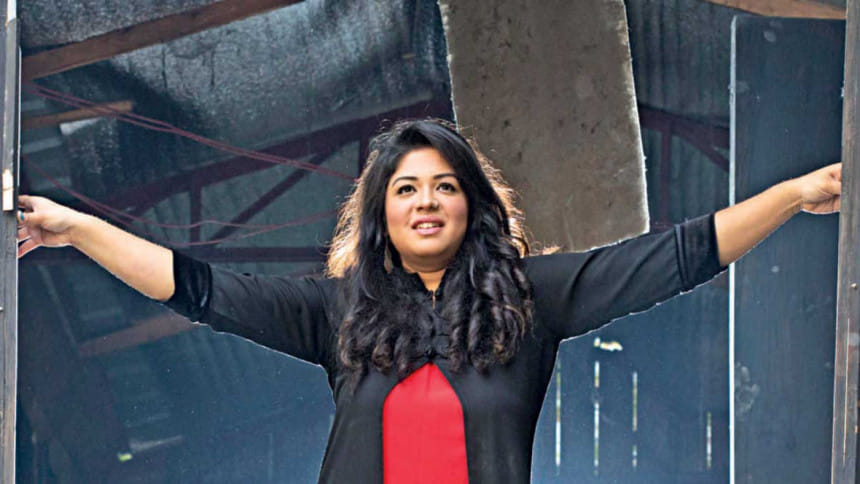
Right out of high school, she rose to fame with the hit single, 'Bhromor Koio', a remake of Radha Raman's classic. Over the years, Armeen Musa has grown into a magnificent singer-songwriter, being a recent graduate of the prestigious Berklee College of Music. She had recently launched her second album, 'Simultaneously'. Star Showbiz immersed into conversation with her, trying to get to know her a little better. From her love for jazz and western music to her reverence for folk, she talked about her life in Berklee and in Dhaka and all things that keep her busy: an online music company, concerts for her new album, her choir group, food blog and a million other things.
You have just launched your second album. Let's start with that.
Yes. My second solo album, called 'Simultaneously', has been released on 8 February. So a lot of space on my schedule calendar for this month is about shows and concerts promoting it.
In the time of my first solo album, 'Aye Ghum Bhangai', I was in Bangladesh and was writing more in Bengali, which was reflected in the work. But in the last 10 years, I have stayed in the US and UK. I have become much more bilingual. This album has 8 songs in English and 2 in Bengali.
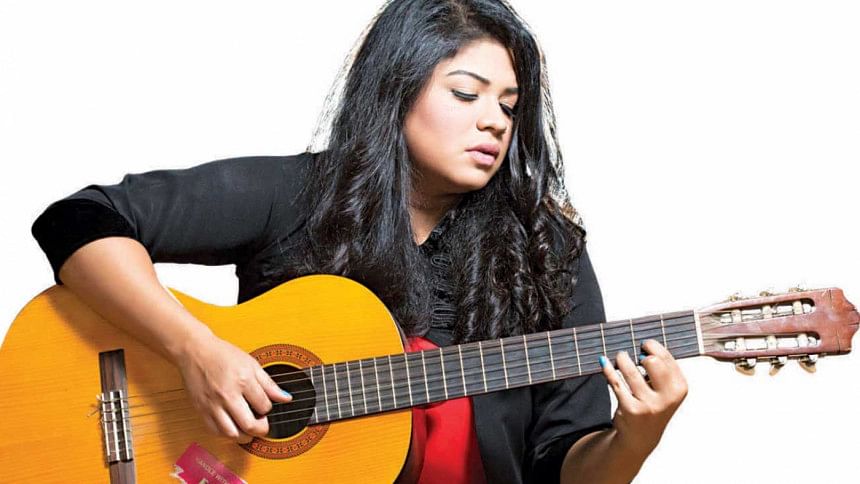
What do you find different in the music industry of our country and that of the USA and UK?
The size of a country really matters. Bangladesh is a small nation; the industry is small. There are numerous musicians, fighting for a small group of sponsors.
Dhaka - and to some extent Chittagong and Sylhet - has a more international crowd listening to a wide plethora of genres. But the rest of the population, generally speaking, is more into just Bengali folk and pop.
For an indie artist like me, the market isn't as big compared to America, where you have very diversified audiences. With a large, diverse population, you have more opportunities. Things are more organised and structured there. So for a struggling musician in their early years, it is possible to handle your finances just through music.

Piracy is a problem for artists in today's world. How are you dealing with that?
It is a grave issue in our country. In England and America, the governments take stern actions against those who are engaging in it. Even in India, piracy is nowadays dealt with rather strictly. But Bangladesh, Pakistan, Sri Lanka and Nepal are lagging behind. Here, many people don't even realise that they are doing something wrong.
So out of this frustration, in 2011 I joined Mushroom Entertainment as a partner. It is essentially a sort of e-commerce music website. It's a pro-artist business model, where over 85% of the revenue goes to the musician. The artist's account shows statistics like the number of albums being sold and from which countries.
Previously, the trade was dealt entirely by the record label company. But now, due to virtual stores, this is changing. If you are registered with an online company like ours, then your song is available in the market.
We have artists not just from Bangladesh, but from countries like Nepal, India, Pakistan and many others.
The model has flipped. It is now the responsibility of the artist to promote themselves. You can promote on social media and other websites. It is becoming an independent musicians' world. And Bangladeshi musicians realise that. I won't say that sales are very amazing right now, but because songs are registered, we also get a small amount from websites like You Tube and streaming software such as Spotify. We also sell through websites like rokomari.com and shurjorajjo.com where Bangladeshi customers can pay conveniently.
I think the days of frustration are quite over, but absolute success is in the future. We just need to raise awareness against piracy among the audience and the government.
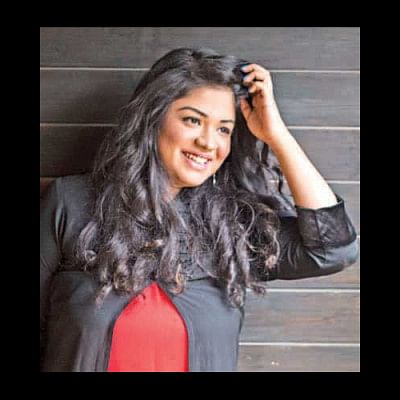
The legendary folk and Bhawaiya singer Abbas Uddin Ahmed is your forefather. How was it like growing up carrying this legacy?
I actually grew up with a lot of rock, blues and jazz. I was leaned towards western music since my teenage years. Meanwhile, in my household there was practice of folk music and songs of Bengali maestros like Lalon, Nazrul and Tagore. And I went to a jazz school probably because it was not something I could learn from my home. I'm not saying that folk or traditional Bengali songs come easy to me, but to a certain extent, I am familiar: I have acquired the essence from a young age.
My family has been very supportive: they never forced me to do Bhawaiya music. It was a beautiful coincidence that my first song was a folk song.
For over a year I have been practicing just one of Abbas Uddin's songs. You need to properly understand the lyrics and the mood of folk music. It grows with you. If I sing folk songs or Tagore or Nazrul, I am going to take time. Music is a 'physical art': it comes from inside your body. I have to gulp the whole of it to give a proper output.
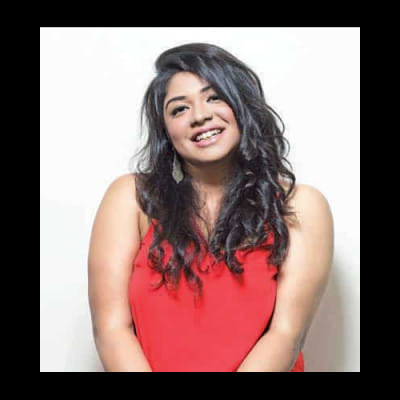
Share with us about performing for A R Rahman.
You know how people tell you that you should never meet your favourite stars face to face, because the human factors ruin the image you have about them? Well, in his case, this has been the opposite. I am now more in love with him than I ever was
A R Rahman represents what this world should be: dedicated, honest, loyal. He does not care about superficial matters like fame or money. He was so cordial, down to earth and curious about how we were recreating his music.
Basically the occasion was that he was given a doctorate from Berklee College of Music. This institution featured the music, and he was the featured guest. As a tribute to him, we did a choir performance of a few of his songs, making our own version for some of them. For example, we revamped the song 'Dil Se' into jazz, with saxophones and all.
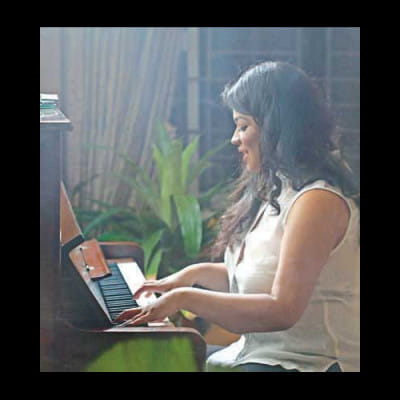
Other than music, what else do you do?
I am an entrepreneur too, but my business is also music. So, other than working on my own music, my office work involves listening to other people's works.
I do have a food blog, www.dhakadelicacy.blogspot.com. It has over 500,000 hits and it has a traffic of about 20,000 per month. I actually get hired to do food photography in eateries here and abroad, and I review restaurants. My hobby is photography, especially food photography. This has been my secret pet project. Just last year, I revealed my identity. Till then, nobody knew that it was me!
These days I am trying to be a healthier person, working out and eating wisely. So I'm trying to do a new range of healthy recipes, hopefully we'll make a video soon. The website is a big part of my life.
Anything else you would like to share with us? Future plans? Your love life? Anything at all?
The love of my life is music. I want to explore different forms of music. Right now I'm working on being a choir director. I want to learn playing different instruments. I want to learn folk songs. I just want to live through music for the rest of my life.
Interviewed by Rafi Hossain and narrated by
M H Haider

 For all latest news, follow The Daily Star's Google News channel.
For all latest news, follow The Daily Star's Google News channel. 



Comments